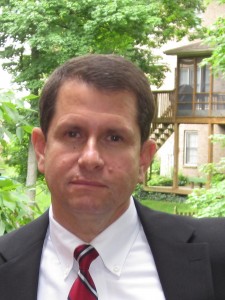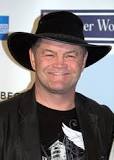Someone posted this prompt on Facebook: what are the ten books that changed your life? Most people just listed ten books, but as I thought about it for a while, I decided that each might benefit from a brief explanation. Anyway, here’s my list:
1. The Rise and Fall of the Third Reich, by William Shirer.
Before I read this book in my junior year in high school I thought that history was boring and meaningless. This book first cured the boring part. It was the first history that I’d read that read like a novel. It was (after the first 100 pages or so) fast paced and full of action. It was also not meaningless, perhaps because a number of my uncles had served in the War. Before reading this book I couldn’t stand history, after reading it I couldn’t get enough of history. I even got a master’s degree in history because of it.
2. Crime and Human Nature, by James Q. Wilson & Richard Hernstein.
Are people basically good or basically bad? That’s really the wrong question. The right question is: how do people really behave? What do statistics about crime and human behavior tell us about human nature? According to this book, about one third of all young men will commit a crime when they are young, but only about 5 to 10 percent of all males are criminals – susceptible to long term nefarious and illegal behavior – and about 1 to 2 percent of all women (and for women a large percentage of crimes are committed at the behest of men). This means that most people are good most of the time, but it does mean that a few people are really bad. This should influence how we deal with other people, and approach crime control, and has many other public policy implications. But for me this insight changed how I thought about humanity.
3. Carnage and Culture, by Victor Davis Hanson
Why does Western Society dominate the world? According to Jarred Diamond, in his book Guns Germs and Steel, it is a bit of a fluke. But according to Hanson, who wrote this book in response to Diamond’s book, the reason is because of the Greek tradition (that dominates the Western world) of rational thought, free inquiry, and democracy. It is not because of Guns, Germs, or Steel. It is not a fluke. It was because the West had developed the ability to think honestly about problems and find the best solution. So the West was able to exploit gunpowder (which had been invented in China for entertainment purposes, i.e. fireworks), and exploit printing (which had been invented in China for decorative purposes) to transmit knowledge. The West was able to exploit Guns and Steel. This concept had a significant impact on my views about world history, culture, and political philosophy.
4. The Autobiography of Maxim Gorki.
This book combines the pathos of Dickens with the joyous boyhood adventures of Mark Twain, but a dash of clear eyed realism from a master Russian realist. I discovered Gorki from Bukowski (see below), and loved his short stories. When you read them, or this autobiography, you will understand why the Russians rebelled, and perhaps get a glimpse of how it descended first in to utter chaos and then into extreme repression.
5. Burning in Water, Drowning in Flame, by Charles Bukowski.
Bukowski blew my mind. I didn’t know you could say those things in print, and in funny and entertaining poetry to boot. Bukowski also introduced me to Gorki in his autobiographical novel “Ham on Rye.”
6. American Caesar: Douglas MacArthur 1880 – 1964, by William Manchester.
Manchester is a brilliant writer, and in this book he had a stake in the game. He felt that General MacArthur saved his life. General Douglas MacArthur was a fascinating guy and lived an amazing life during an epic time in history, so this book covers a lot of ground. I learned about the War in the Pacific (during WWII) from this book. I also learned what it means to chose your battles. MacArthur won in the Pacific by only fighting on those islands that he absolutely needed, and simply ignored the rest. Manchester was a Marine scout in the war and knew that he and probably hundreds of thousands of fellow soldiers (American and Japanese) would have died had MacArthur followed the advice of some and fought on every island.
7. The Amazing Adventures of Kavalier and Clay, by Michael Chabon.
I read a lot of fiction. I might not be obvious from this list, but I do. Somehow in the early 1980’s the more high-brow literary fiction became overly internal, maudlin, and uninteresting and difficult to read. (My sister blames Ray Carver.) This was one of the first modern works of literary fiction that read like an old time action adventure story. It reintroduced my to contemporary literary fiction and showed me what it could do. That said, I still love Graham Green and Thomas Hardy.
8. Liberating the Gospels, by John Shelby Spong.
To truly understand Christianity you have to understand the Bible, and to understand the Bible you have to understand when, why, and how it was written. Once you understand that, its difficult to believe in ideas like literalism, infallibility, and divinity. Once you understand the development of the Bible, and the development of Christianity, you can see through the fallacies of the views of fundamentalist Christians.
9. The Science of Liberty: Democracy, Reason, and the Laws of Nature, by Timothy Ferris.
Modern political liberalism developed contemporaneously with the scientific revolution. They actually developed hand in hand, with ideas from one feeding ideas in the other. The same ideas of reason, rationality, deduction and free inquiry that drove new ideas in science also drove new ideas in political philosophy. These changes and discoveries also drove the economy. History shows that open, rational thought (i.e. liberalism) leads to scientific advances, democratic government, and a growing economy. (There are shades of Hanson’s Carnage and Culture within,)
10. Great Expectations by Charles Dickens.
This is my favorite novel. I felt that I had to include at least one novel simply because I liked it. And it had to be either Dickens or Hemingway, since those are my favorite writers, and for some reason (see Gorki above) I have a fondness for coming of age stories, so that left Hemingway out (his coming of age stories are all short, and collected as the Nick Adams stories). David Copperfield is a close second, and few literary characters are more memorable that Uriah Heep, but overall I like this best.

